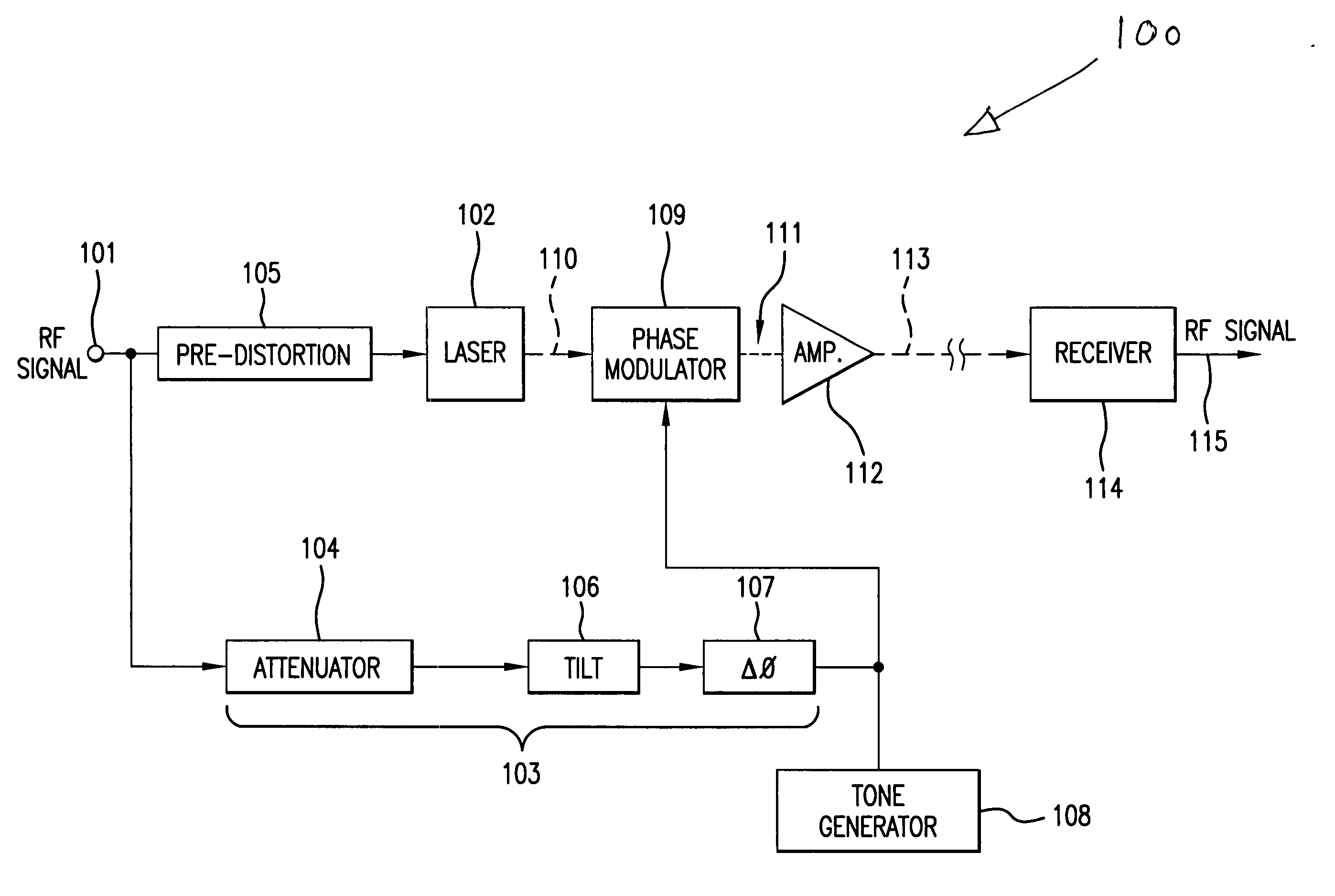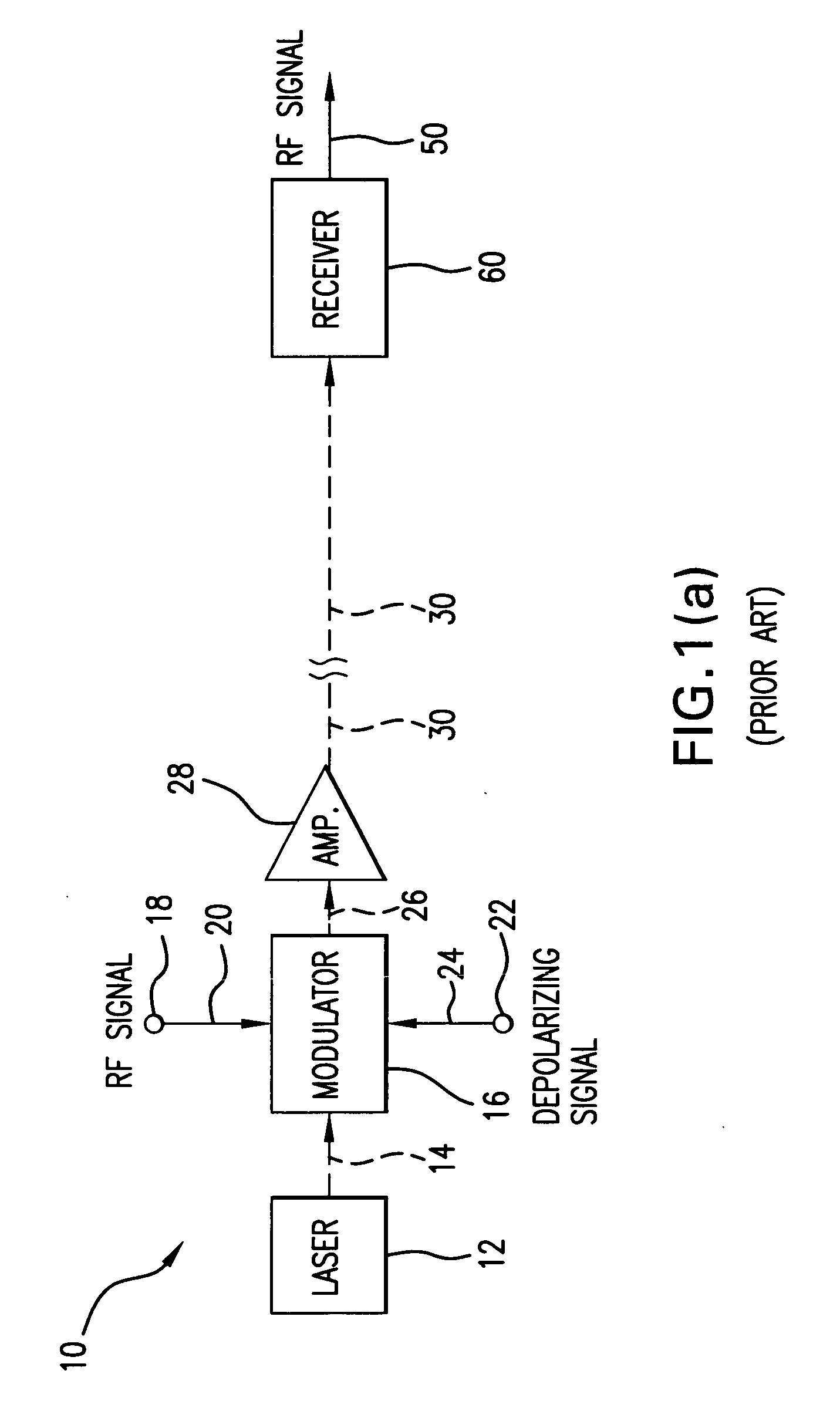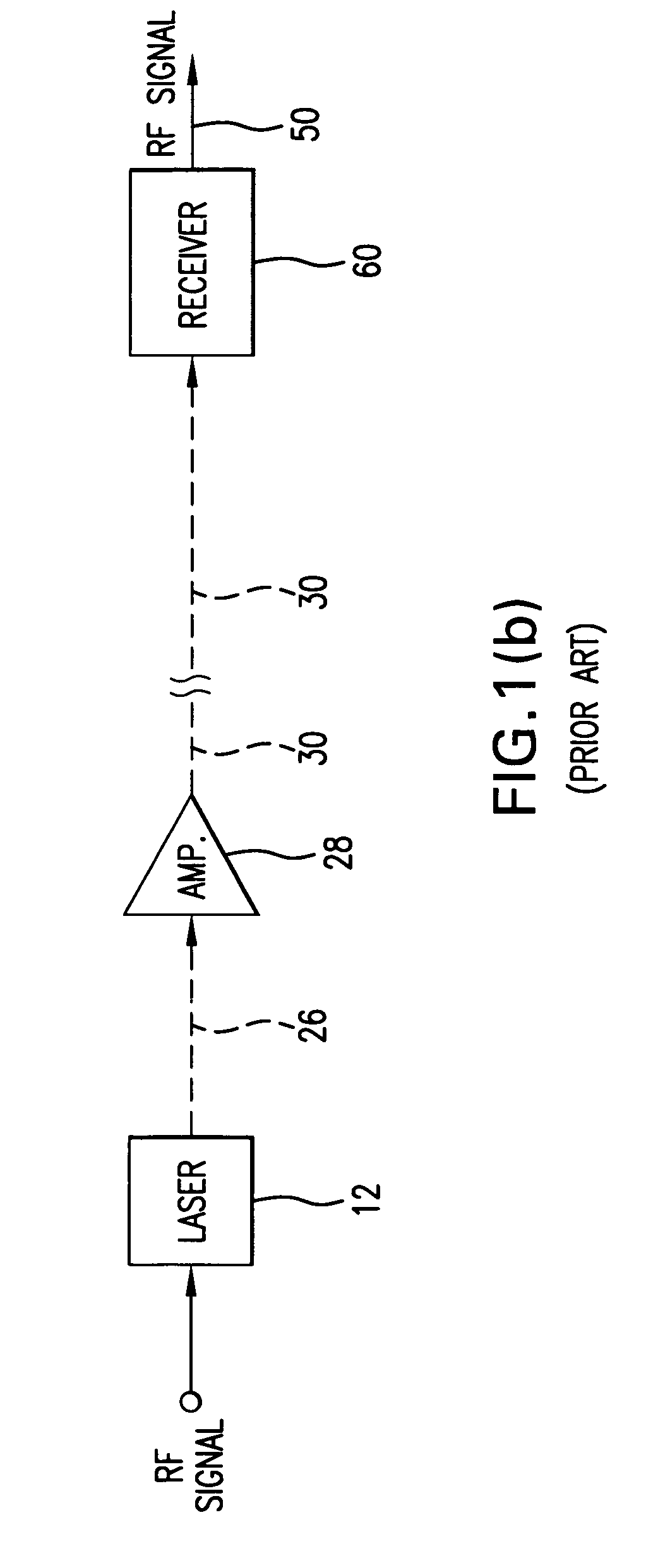Directly modulated laser optical transmission system with phase modulation
a laser optical transmission system and phase modulation technology, applied in the field of optical transmission systems, can solve the problems of the use of amplitude modulation may suffer from the noise and nonlinearity of the optical source, and the external modulation technique is complex and expensive, and achieves the effect of reducing transmission distortion
- Summary
- Abstract
- Description
- Claims
- Application Information
AI Technical Summary
Benefits of technology
Problems solved by technology
Method used
Image
Examples
Embodiment Construction
[0034] Details of the present invention will now be described, including exemplary aspects and embodiments thereof. Referring to the drawings and the following description, like reference numbers are used to identify like or functionally similar elements, and are intended to illustrate major features of exemplary embodiments in a highly simplified diagrammatic manner. Moreover, the drawings are not intended to depict every feature of actual embodiments nor the relative dimensions of the depicted elements, and are not drawn to scale.
[0035]FIG. 1(a) is block diagram of a prior art optical transmitter as represented in U.S. Pat. No. 5,699,179 utilizing an external modulator. The transmitter, shown generally at 10, transmits an optical signal to a receiver 60 over an optical fiber path 30. The transmitter 10 includes a semiconductor laser 12, which produces a continuous wave (CW) output. Typical examples of such lasers are distributed feedback (DFB) lasers or Fabry-Perot lasers that pr...
PUM
 Login to View More
Login to View More Abstract
Description
Claims
Application Information
 Login to View More
Login to View More - R&D
- Intellectual Property
- Life Sciences
- Materials
- Tech Scout
- Unparalleled Data Quality
- Higher Quality Content
- 60% Fewer Hallucinations
Browse by: Latest US Patents, China's latest patents, Technical Efficacy Thesaurus, Application Domain, Technology Topic, Popular Technical Reports.
© 2025 PatSnap. All rights reserved.Legal|Privacy policy|Modern Slavery Act Transparency Statement|Sitemap|About US| Contact US: help@patsnap.com



